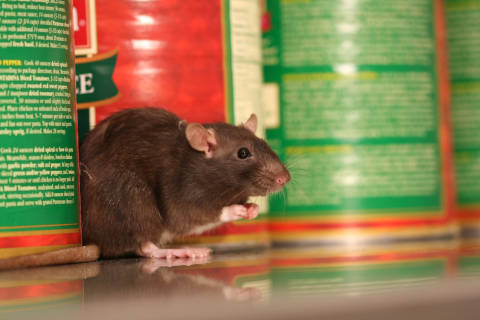WASHINGTON — Warmer winters apparently have been great for D.C.’s rat community, and District officials hope to change that.
Mayor Muriel Bowser outlined initiatives Thursday to reduce the rat population, which is believed to have increased in the last few years. According to officials, the number of rodent-abatement requests increased last year by 65 percent — from 2,300 in 2015 to more than 3,500 in 2016.
D.C.’s initiatives focus on improving how the District, businesses and residents manage what rats love: all that delicious trash.
The District’s Department of Small and Local Business Development will offer grants of up to $13,500 for some businesses to purchase or lease a sealed, rodent-proof commercial compactor for their trash, recyclables or compost. The grant program runs through September and could help over 60 businesses.
In addition, D.C.’s Health Department will deploy 25 solar trash cans and 400 “smart” litter bins in “rat hot spots.”
The solar trash cans, which are enclosed and rat-proof, have panels built into them, allowing them to generate their own power to compact trash. The smart litter bins are equipped with a sensor that monitors the amount and weight of waste. The sensor relays this data to the Department of Public Works via the internet, so crews can track which bins need a pickup.
“We are taking a comprehensive and 21st-century approach to an old problem,” Bowser said in a press release.
Rats are a notoriously hardy lot, however, and D.C. residents have to do their part as well. Bowser recommended the following:
- Store garbage in metal or heavy plastic containers with tight-fitting lids.
- Place trash outside shortly before pickup.
- Remove weeds and other debris near buildings and in yards.
- Store food in metal, glass or heavy-duty plastic containers with tight-fitting lids.
- Remove uneaten pet food and store pet food in secure containers.
And last but not least, residents should call or text 311 if they need to report rodent issues.
“The Department of Health takes rodents very seriously and hears the concerns of residents loud and clear,” said Dr. LaQuandra Nesbitt, director of the District’s Health Department.








